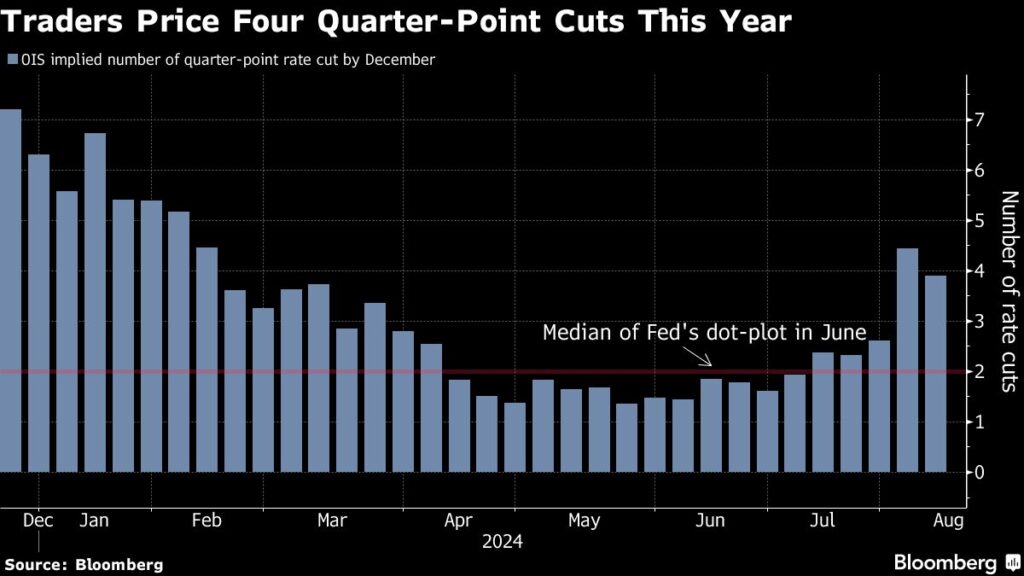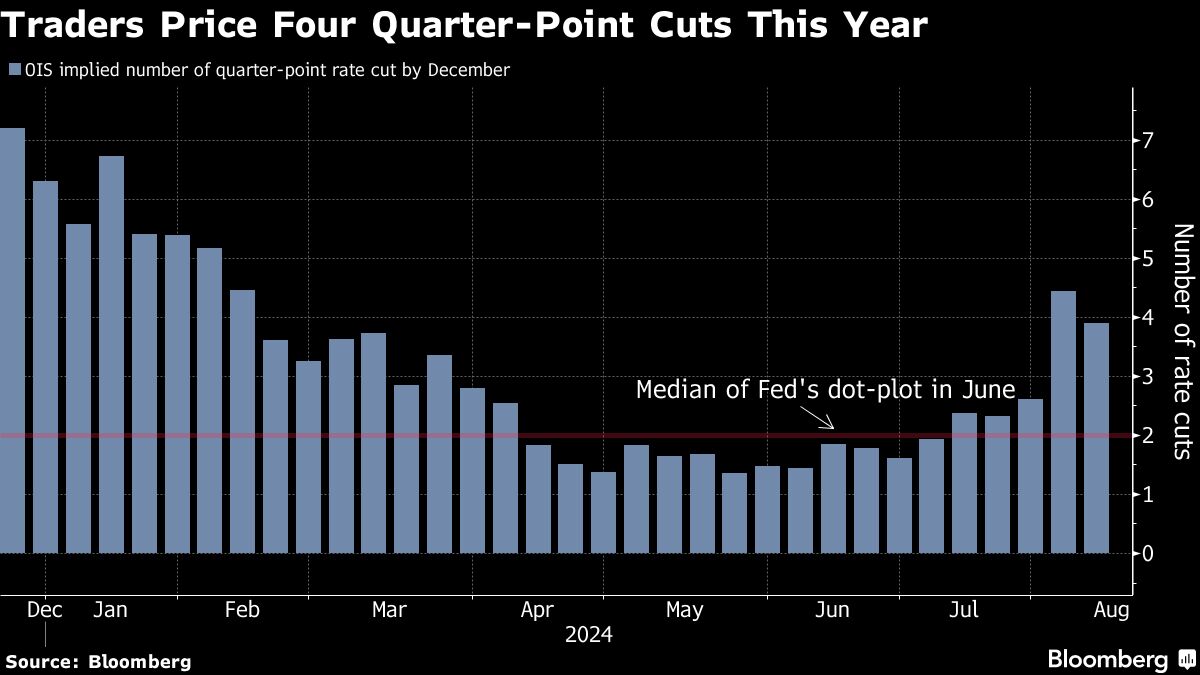Equities Rebound Loses Steam as Yen Rises Again: Markets Wrap


(Bloomberg) — A global stock rally lost momentum as the yen resumed its rise, stoking renewed worries over the carry-trade unwind after a nascent recovery driven by signs of resilience in the US labor market.
Most Read from Bloomberg
European stocks edged higher at the end of a tumultuous week that saw volatility spike to historic highs. US equity futures erased early gains after the S&P 500 notched its best daily advance since Nov. 2022. The benchmark remains on track for a fourth straight weekly decline. Treasury yields dipped and a gauge of the dollar declined.
The resurgent yen threatens a full recovery of risk appetite. It came just as a better US jobless claims report helped alleviate fears of a recession triggered by last week’s worse-than-expected employment data. Much now depends on US data next week, especially consumer-inflation and retail-sales numbers, with investors hoping for evidence of a soft landing.
“Market volatility could remain elevated for some time,” said Mark Haefele, chief investment officer at UBS Global Wealth Management. “More yen carry trades could unwind, leading some investors to sell risk assets. Economic uncertainty remains high.”
Unwinding of carry trades has further room to run and short-yen positions will continue to be slashed as the Japanese currency strengthens, according to Bob Savage, head of markets strategy at BNY Mellon Capital Markets. Investors are still too bearish on the yen, which could advance toward 100 per dollar over time, he said.
Japan’s Topix index narrowed its gain to 0.9% from as much as 2% earlier, after the Japanese currency erased losses to strengthen against the dollar. A stronger yen puts a damper on the country’s stocks as it erodes Japan’s export competitiveness.
Chinese shares turned flat after an earlier advance as perceptions grew that a better-than-expected inflation print mainly resulted from seasonal factors like weather.
Mixed signals from US central bank officials also may prompt caution among investors. For one, Federal Reserve Bank of Kansas City President Jeffrey Schmid indicated he’s not ready to support a reduction in interest rates with inflation above the target, according to comments made on Thursday in the US.
Swap traders further trimmed bets on aggressive Fed easing in 2024. The global repricing has been so sharp that at one point interest-rate swaps implied a 60% chance of an emergency rate cut by the Fed in the coming week — well before its next scheduled meeting in September. Current pricing suggests about 40 basis points of cuts for September.
Oil was steady following a Thursday rally, against the backdrop of simmering tensions in the Middle East. Gold slid.
Key events this week:
-
Germany CPI
Some of the main moves in markets:
Stocks
-
The Stoxx Europe 600 rose 0.4% as of 8:11 a.m. London time
-
S&P 500 futures rose 0.1%
-
Nasdaq 100 futures rose 0.1%
-
Futures on the Dow Jones Industrial Average rose 0.1%
-
The MSCI Asia Pacific Index rose 1.5%
-
The MSCI Emerging Markets Index rose 1.7%
Currencies
-
The Bloomberg Dollar Spot Index fell 0.2%
-
The euro was little changed at $1.0928
-
The Japanese yen was little changed at 147.09 per dollar
-
The offshore yuan rose 0.2% to 7.1727 per dollar
-
The British pound rose 0.2% to $1.2771
Cryptocurrencies
-
Bitcoin rose 2.6% to $61,086.26
-
Ether rose 4.7% to $2,692.79
Bonds
-
The yield on 10-year Treasuries declined two basis points to 3.97%
-
Germany’s 10-year yield declined one basis point to 2.26%
-
Britain’s 10-year yield declined one basis point to 3.97%
Commodities
-
Brent crude was little changed
-
Spot gold fell 0.3% to $2,420.89 an ounce
This story was produced with the assistance of Bloomberg Automation.
–With assistance from Richard Henderson.
Most Read from Bloomberg Businessweek
©2024 Bloomberg L.P.








